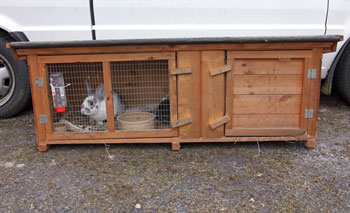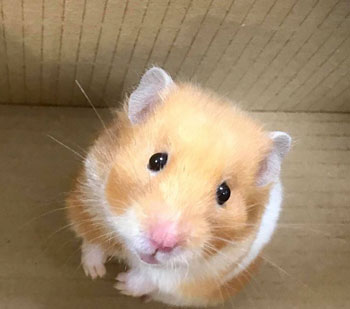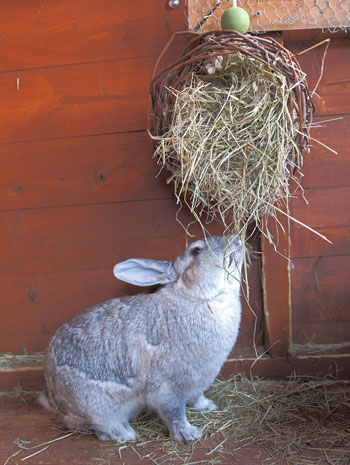Primary Times - the definitive what’s on and where to go family guide of activities and events for children of primary school age. Things to do with your kids during the school holidays including arts and craft activities, music and theatre for children, parties, competitions, days out, and family attractions along with term time drama schools, dance classes, after school clubs and sports activities. Things to do at a place near you!
Shopping kindly: The surprising products which could be bad for our pets
The RSPCA has revealed the popular pet products which animal lovers may not realise could unintentionally cause more harm than good.
Animal-loving shoppers buying these popular items for their much-loved pets could be surprised to learn some of them may not be the best option for their furry, four-legged or scaly friends.
Dr Julia Wrathall, RSPCA Chief Scientific Officer, said: “We are a nation of animal lovers yet some of the products we buy for our much-loved pets can do more harm than good.
“We would like to raise awareness about these items so people think twice before buying or selling these products. Many people are unknowingly buying these items without realising the negative impact they could have.”
Here, the RSPCA gives our advice and reveals some products to avoid:
 Hutches with no exercise area: It used to be a common sight to see a lone rabbit in a small hutch at the bottom of the garden but this image should be consigned to the past. Not only should rabbits be housed in pairs but housing them in hutches without a permanently attached exercise area has a detrimental impact on their welfare.
Hutches with no exercise area: It used to be a common sight to see a lone rabbit in a small hutch at the bottom of the garden but this image should be consigned to the past. Not only should rabbits be housed in pairs but housing them in hutches without a permanently attached exercise area has a detrimental impact on their welfare.
To ensure that rabbits are happy and healthy they need a living area which provides a shelter and a permanently attached place to exercise. The RSPCA commissioned research undertaken by the University of Bristol investigating the spatial needs of rabbits which found that a compatible pair of medium-sized rabbits need a living area of at least three metres by two metres, and one metre high. They need to be allowed to stretch out fully without touching the sides and stand up on their hind legs without their ears touching the roof.
Flea collars for cats: It’s really important to treat your cat for fleas but be careful when shopping for a collar to keep them at bay. Cats are natural hunters and curious explorers that enjoy climbing trees or pushing through tight spots and for these reasons it is imperative that any collar is designed to free the cat should they become snagged during their adventures.
Many flea collars are designed so that they have to be cut off with a good pair of scissors rather than using a safety buckle for a quick-release if the cat gets stuck on something. Others may feature an elasticated section, but this too can cause injury should the cat attempt to free itself of the collar - cats can get their forelimb trapped in the collar which can cut into the armpit area and the chest of the cat. This type of injury is very painful and difficult to treat.
Non-prescription collars are also not very effective at treating fleas, as often the fleas will just move towards the rear of the cat and can cause skin irritation. We would recommend a suitable regular flea treatment instead.
 Cotton wool or similar ‘fluffy’ bedding: Small animals such as hamsters and gerbils need nesting materials to regulate their temperature and keep them warm. Materials such as hay, shredded paper, strips and paper tissues should be used as nesting.
Cotton wool or similar ‘fluffy’ bedding: Small animals such as hamsters and gerbils need nesting materials to regulate their temperature and keep them warm. Materials such as hay, shredded paper, strips and paper tissues should be used as nesting.
Owners should avoid nesting materials that separate into thin strands such as cotton wool or similar ‘fluffy’ bedding products. Although these are available to buy in pet shops and other retailers, they pose a serious risk to the animal as this material can be harmful if ingested, or the thin strands can cause entanglement leading to loss of circulation or death.
Fur dye and glitter: It's great that people want to spend quality time with their pets but important for owners to understand that some attempts to 'pamper' can be confusing and frightening for pets. While we often enjoy painting our nails and wearing jewels, dogs and cats don't understand what is happening to them or why and some animals may find this process distressing.
People may think they are treating their pets by painting their claws or dying their fur, but some of the paints, dyes, inks and glues used during 'pampering' can be toxic and harmful to animals. Even if a dye is marketed as “pet friendly”, we would strongly advise against it, as it may cause irritation and lead to overgrooming.
We would much rather see owners treating their pets by playing games, going for nice walks or learning something new together like agility or obedience.
 Inappropriate snacks for rabbits: Muesli-style food for rabbits is another item to leave off the shopping list. Well-meaning owners think they are doing the right thing by buying muesli-based rabbit food, which is available in pet shops, but new research shows that this can cause them teeth and tummy problems. Rabbits really need a diet that is is made up primarily of hay and/or grass.
Inappropriate snacks for rabbits: Muesli-style food for rabbits is another item to leave off the shopping list. Well-meaning owners think they are doing the right thing by buying muesli-based rabbit food, which is available in pet shops, but new research shows that this can cause them teeth and tummy problems. Rabbits really need a diet that is is made up primarily of hay and/or grass.
Eating a bundle of hay and/or grass which is as big as they are each day is far more important than eating commercial foods and helps keep teeth and tummies healthy.
Small fish tanks: Unfortunately, it's common to see small fish tanks which are sold for sale as 'starter kits', or aimed at children who want to keep fish. 'Decorative' tanks, which can include goldfish bowls, jars or children's tanks are designed primarily as ornaments, rather than with the welfare of the fish in mind. Such small tanks provide limited or no opportunities for enrichment, shelter, company or a stable temperature, all of which are important factors in providing fish with a suitable living environment. Many fish need company but these small tanks rarely allow space for more than one fish, and keeping too many in a small tank would affect the water quality and cause the fish stress.
The RSPCA would always recommend that you buy tanks which can hold at least 40 litres of water. Small volumes of water also mean that the temperature levels can change rapidly, which can cause stress to fish and even death. There will be a low surface area of water at the top of the bowl which means that not enough oxygen can be absorbed into the water, and most bowls or small tanks don't include an efficient filter so the fish's waste products can't be removed. Bigger is always better when it comes to fish tanks.
Dr Wrathall added: “We would always urge animal lovers to shop kindly and avoid these products which can have a detrimental impact on animals.
“It doesn’t have to cost very much to treat our pets or look after the animals around us. Spending quality, one on one time with our pets, baking treats or making your own toys is a simple and great way to bond with our furry friends.”
The RSPCA has lots of ideas for people who want to try their hand at some DIY treats and toys, such as videos for making your own dog sock toy, a puzzle feeder for cats or even whipping up some sushi for Guinea pigs.
For more information on any of these issues, visit www.rspca.org.uk. To help the RSPCA continue to rescue, rehabilitate and rehome animals in desperate need of care, visit www.rspca.org.uk/give.



